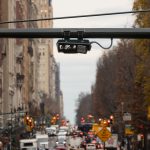ICE Signs $2 Million Contract With Spyware Maker Paragon Solutions
The U.S. Immigration and Customs Enforcement (ICE) agency has reportedly signed a $2 million contract with Paragon Solutions, a company known for developing spyware technology. The controversial deal has raised concerns among privacy advocates and civil rights groups, as it involves the use of surveillance tools.
According to sources familiar with the matter, the contract with Paragon Solutions includes the provision of advanced monitoring software that can track and intercept communications on electronic devices. This technology has been criticized for its potential to infringe on individuals’ privacy and civil liberties.
ICE officials have defended the agreement, stating that the spyware will be used for law enforcement purposes to combat illegal activities such as human trafficking and terrorism. However, critics argue that the use of such invasive technology raises serious ethical questions and could lead to abuses of power.
The contract with Paragon Solutions is just the latest example of government agencies partnering with tech companies to enhance surveillance capabilities. As concerns grow about the overreach of surveillance programs, there is a pressing need for transparency and accountability in the use of these technologies.
Privacy advocates have called for greater oversight of government surveillance programs and stronger safeguards to protect individuals’ rights. The public debate over the use of spyware and other surveillance tools is likely to continue as technology advances and new threats emerge.
It remains to be seen how the contract between ICE and Paragon Solutions will impact privacy rights and civil liberties in the digital age. As the use of surveillance technology becomes more prevalent, it is crucial for policymakers and the public to engage in informed discussions about the balance between security and privacy.










More Stories
Tesla’s Cybertruck Goes, Inevitably, to War
What Google’s U-Turn on Third-Party Cookies Means for Chrome Privacy
License Plate Readers Are Creating a US-Wide Database of Political Lawn Signs and Bumper Stickers